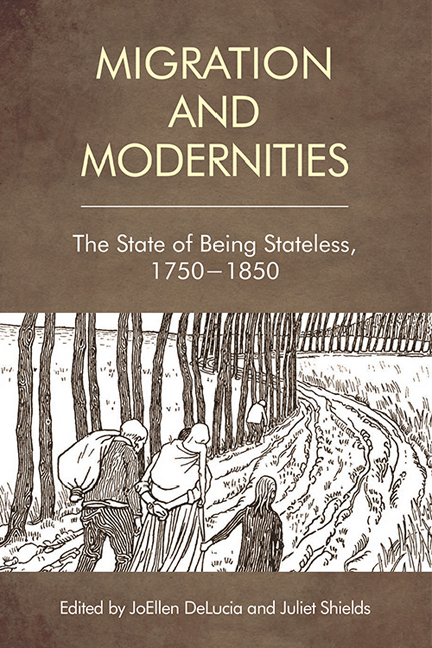7 - Orientalism in Transit: Company Men, Colonial Historiography, and Other Handmaidens of Empire
Published online by Cambridge University Press: 05 May 2021
Summary
This chapter examines records of the work of a group of men affiliated with the British East India Company in the 1790s. The chapter's title alludes to the title of Dominick LaCapra's work on the practice of historiography. In the book's introduction, LaCapra explains that “history is always in transit,” much like other disciplines of interpretation, because it is alive to the mobility of its own interpretive position. To remain historiography, LaCapra suggests, history must account for its own motion in establishing pasts and presents, reluctant to offer definitive interpretations and resistant to transcendence.
I borrow LaCapra's phrase because it offers a means to think in new ways about histories of migration as integral to histories of modern nations and states constituted out of histories of empire. At a moment when the criteria for admission into national communities are undergoing acute scrutiny and pressure from thousands of migrants seeking physical protection from the catastrophic disintegration of their nations, remembering colonialism as an integral part of the transformation of European nation-states into “imagined communities” (in Benedict Anderson's famed phrase) is a reminder that these ideological and spatial formations required and encouraged physical displacement and detachment from the native soil for some of their citizens. Here, a cluster of colonial documents left behind by a group of British men working in India at the turn of the nineteenth century provides preliminary material for such a history of empire as a history of work done by migrants – a history in transit.
This group of men with colonial careers comes into view from archival texts labeled “materials sent to John Bruce, the Company Historiographer.” The “official historiographer” of the East India Company between 1793 and 1817, Bruce was hired at a moment of global political crisis to assist with the writing of a book of history that would represent favorably in London the transnational work the Company was doing in South Asia. The book was meant to ease the political process of renewing the Company charter through Parliamentary structures and become the kind of publication that would make the Company's activities less offputting to a public tired of hearing about corruption and scandal.
- Type
- Chapter
- Information
- Migration and ModernitiesThe State of Being Stateless, 1750–1850, pp. 170 - 183Publisher: Edinburgh University PressPrint publication year: 2018



